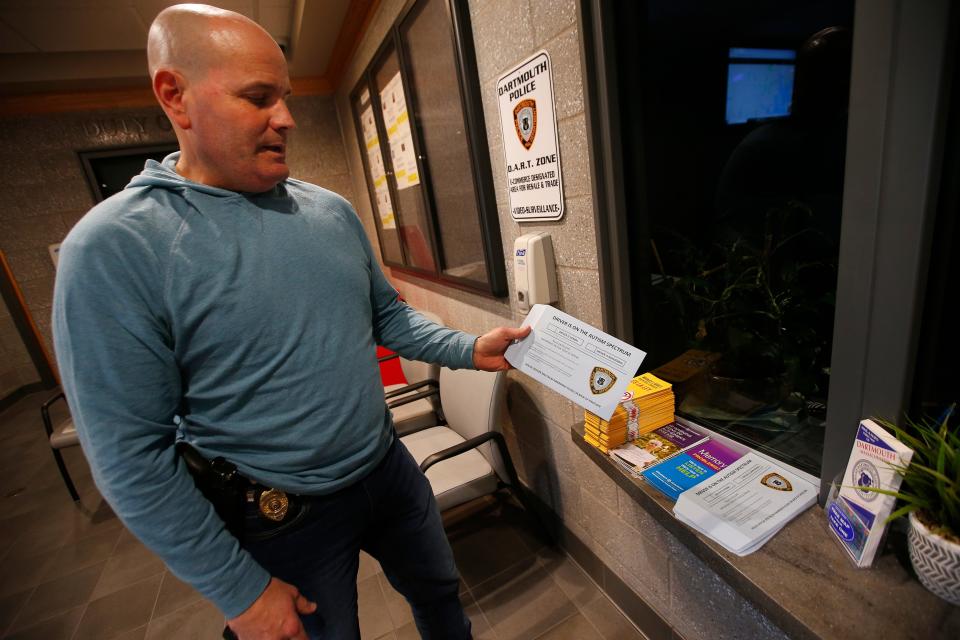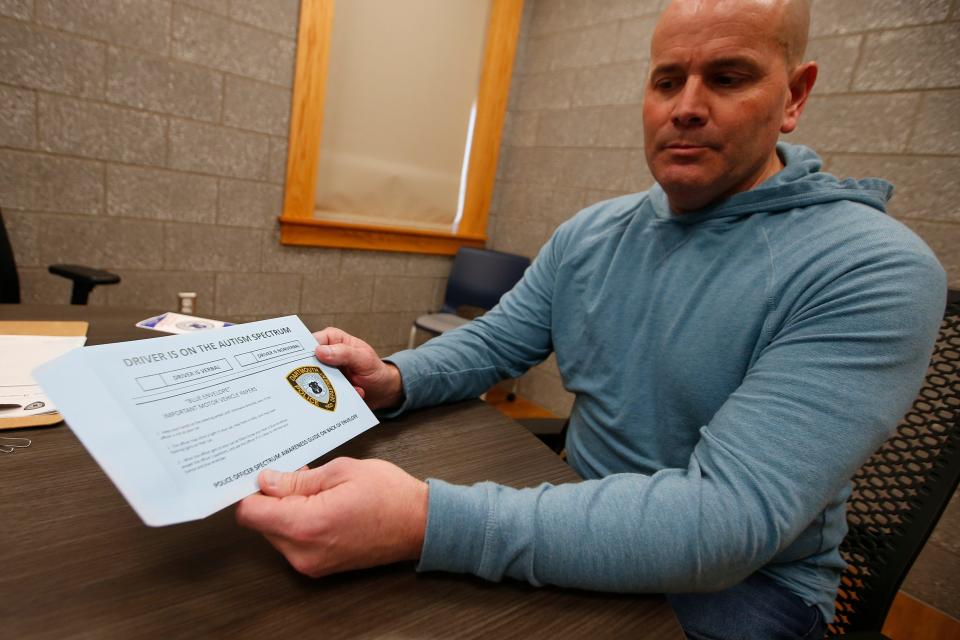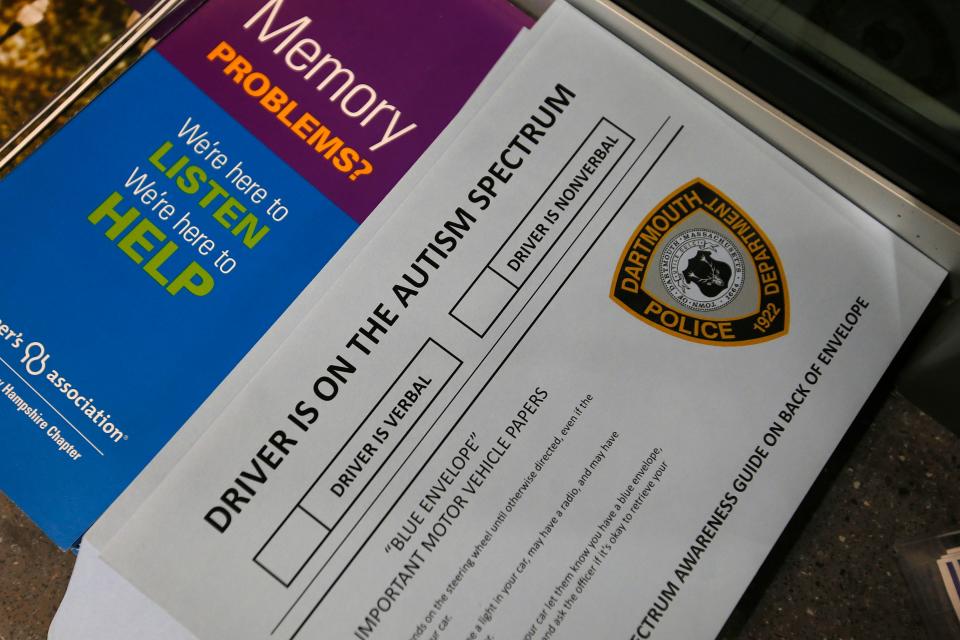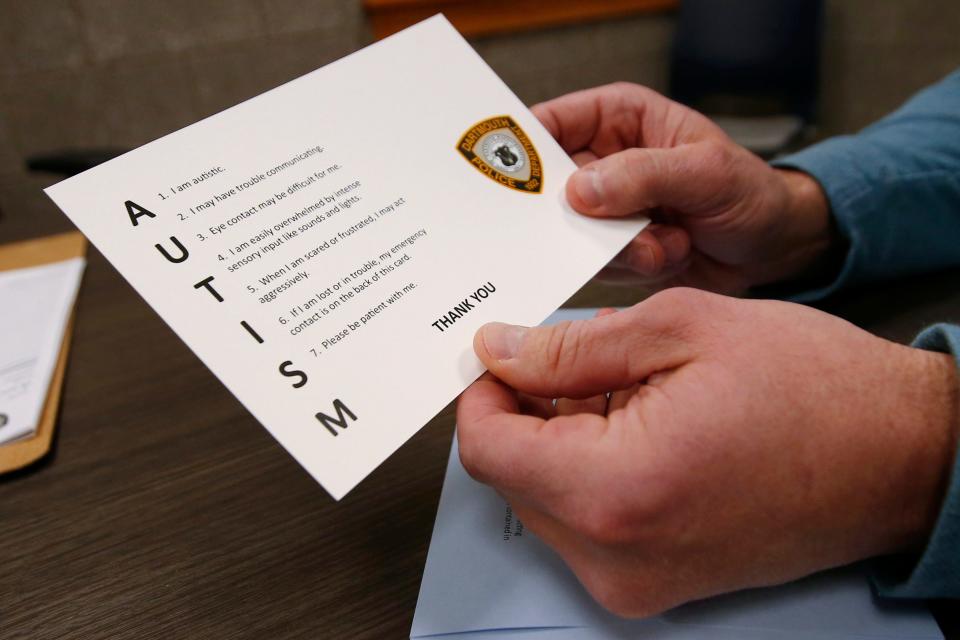Blue Envelope Program connects police with drivers on the autism spectrum: How it works
More and more police departments are participating in a new program meant to help drivers who are on the autism spectrum who may panic when stopped by police while driving.
The Blue Envelope Program is designed to alert police and first responders that the occupant of the vehicle they are interacting with — whether it’s during a motor vehicle stop, an accident or in case a vehicle breaks down while they are driving — is on the autism spectrum.
The Dartmouth Police Department recently joined other communities in making the blue envelopes available to the public in the main lobby of the police station located at 1390 Tucker Road 24 hours a day, seven days a week.

The distinctive blue envelopes come with two sets of instructions. One set tells the driver what to expect when interacting with the police, and the other set of instructions helps officers recognize some of the signs and systems people on the spectrum may exhibit.
Deciding to sign on
Dartmouth Police Chief Brian Levesque said when he was approached by Officer Scott Affonce with the suggestion that they join other departments in starting the Blue Envelope Program, he fully supported it.
Levesque said they have received lots of positive feedback from the community, with much of the positive response from people who may know someone on the spectrum and appreciate the department’s decision to participate in the program.
He said the officers are trained in interacting people with autism, and the program adds to the ability to communicate.
“The problem that we have sometimes is that identifying people with autism can be difficult, but with the envelopes there’s no question for the officer that the person they’re dealing with has autism so then they’re able to utilize their training right away and are able to skip over the identification portion,” he said.

This program allows for people with autism spectrum disorder to place their driver’s license, registration and insurance card in a blue envelope which can be handed to a police officer.
On the outside of the envelope there are specific instructions relative to the driver’s diagnosis, impairments, triggers, emergency contact information and best practices for communicating.
The blue envelopes often contain important documents including their license, vehicle registration, insurance cards and emergency contact information.

Which police departments use the Blue Envelope Program?
Several area police departments have implemented the program. The blue envelopes are available free of charge.
The Marion Police Department launched the Blue Envelope Program at the beginning of this year. The envelopes can be picked up at the police station at 550 Mill St.
Fairhaven adopted the program over the summer. The blue envelopes are available at the police headquarters located at 1 Bryant Lane.

Statewide bill would approve voluntary program
The Massachusetts Senate voted unanimously Jan. 4 to support proposed “Blue Envelope” legislation to improve interactions between police officers and people with autism spectrum disorder. The program would be voluntary.
According to a press release from the Senate, the bill has wide support from autism spectrum disorder advocates and law enforcement organizations around the state.
In the release, Maura Sullivan, director of government affairs for The Arc of Massachusetts, said the Arc and Advocates for Autism of Massachusetts are grateful to the senate for passing what is a priority bill for advocacy organizations.
“This bill will ease interactions between police and autistic drivers,” she said. “We know these situations can escalate and become traumatic or even dangerous. The Arc and AFAM applaud the Senate for taking action to be inclusive of the needs of the drivers with autism in Massachusetts.”
What New Bedford offers for autistic drivers
The New Bedford Police Department has a similar program called “Let Me Introduce Myself” that it initiated in 2021.
So far, 37 people have signed up. Forms are available at police headquarters at 871 Rockdale Avenue,. When they are filled out and returned, the information is stored as “caution notes” in the police database so officers can be better prepared to meet their individual needs or limitations.
Standard-Times staff writer Kathryn Gallerani can be reached at kgallerani@gannett.com. Follow her on Twitter: @kgallreporter. Support local journalism by purchasing a digital or print subscription to The Standard-Times today.
This article originally appeared on Standard-Times: Blue Envelope Program takes hold in Massachusetts police departments

